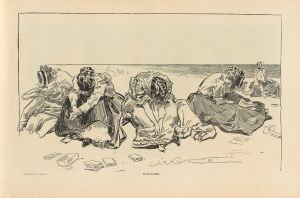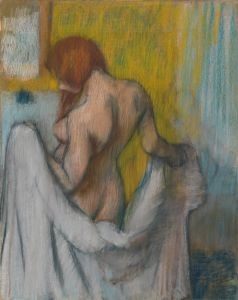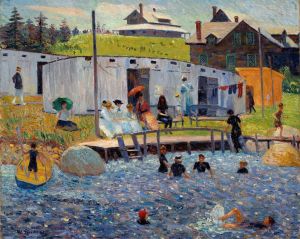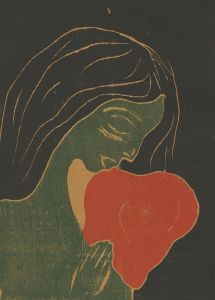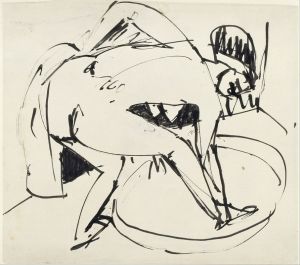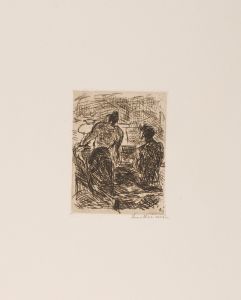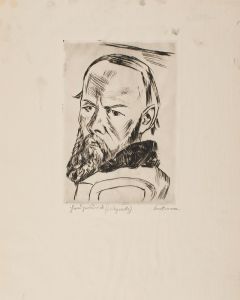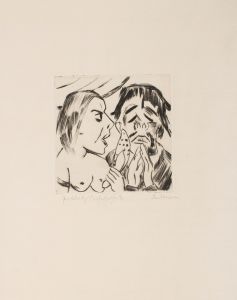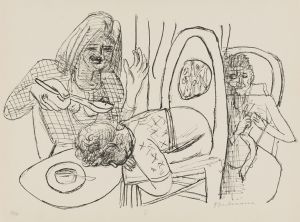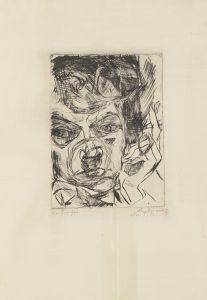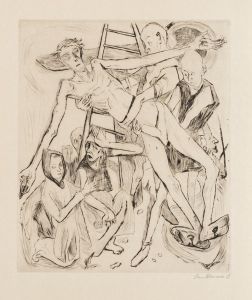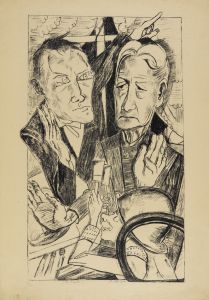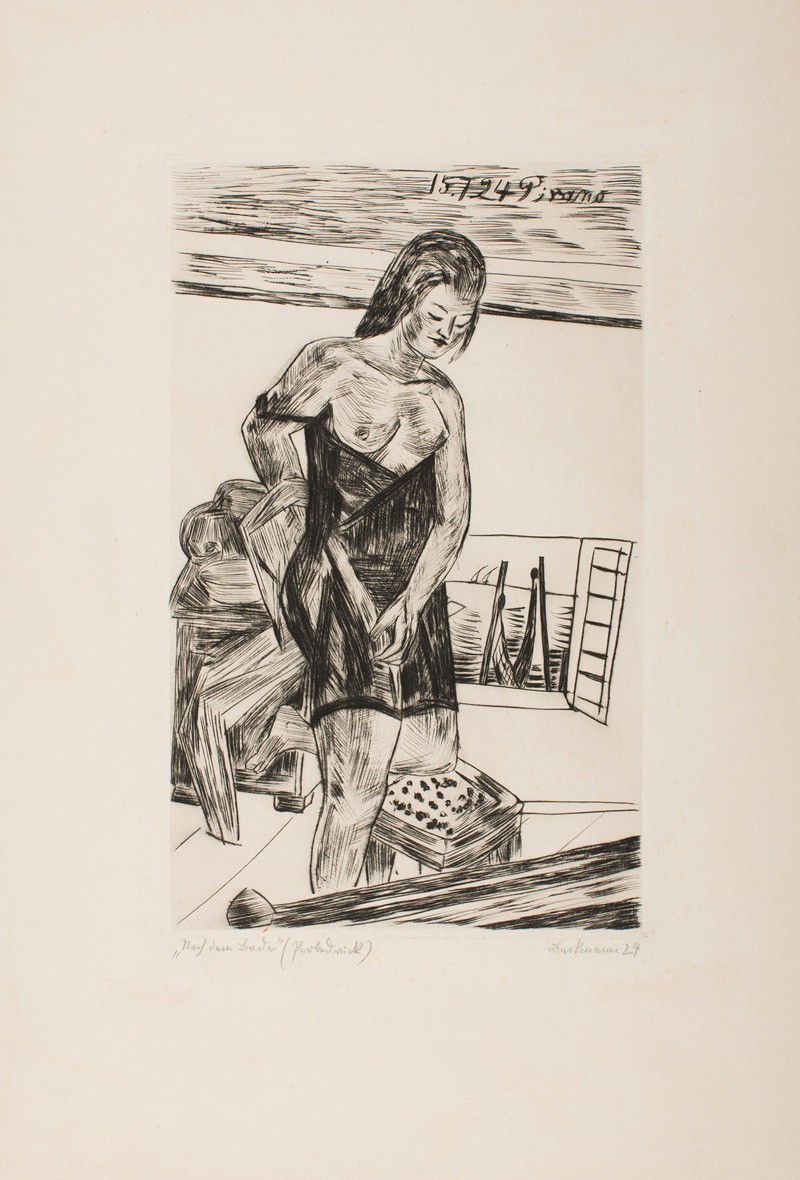
Bathing Cabin
A hand-painted replica of Max Beckmann’s masterpiece Bathing Cabin, meticulously crafted by professional artists to capture the true essence of the original. Each piece is created with museum-quality canvas and rare mineral pigments, carefully painted by experienced artists with delicate brushstrokes and rich, layered colors to perfectly recreate the texture of the original artwork. Unlike machine-printed reproductions, this hand-painted version brings the painting to life, infused with the artist’s emotions and skill in every stroke. Whether for personal collection or home decoration, it instantly elevates the artistic atmosphere of any space.
Max Beckmann's "Bathing Cabin" is a notable work by the German painter, who is recognized for his contributions to the Expressionist movement. Beckmann, born in 1884 in Leipzig, Germany, is known for his distinctive style that often combines elements of Expressionism and New Objectivity. His works frequently explore themes of human experience, often reflecting the tumultuous socio-political landscape of early 20th-century Europe.
"Bathing Cabin" was painted during a period when Beckmann was transitioning from his early Impressionist influences to a more mature style characterized by bold colors, strong outlines, and complex compositions. This painting is a part of Beckmann's broader body of work that often includes scenes of leisure juxtaposed with a sense of underlying tension or unease, a reflection of the artist's own experiences and the broader societal changes occurring during his lifetime.
The painting depicts a scene at a beach or a bathing area, capturing the essence of leisure and recreation. Beckmann's use of color and form in "Bathing Cabin" is typical of his style, with a focus on the human figure and the interaction between individuals and their environment. The figures in the painting are rendered with Beckmann's characteristic bold outlines and a somewhat distorted perspective, which adds a dynamic quality to the composition.
Beckmann's work during this period often reflects his interest in the human condition and the complexities of modern life. "Bathing Cabin" can be seen as part of this exploration, where the seemingly mundane activity of bathing is imbued with a deeper significance. The painting may also reflect Beckmann's personal experiences and observations of society, as he lived through significant historical events such as World War I and the interwar period in Germany.
Throughout his career, Beckmann's work was influenced by his personal experiences and the broader historical context. After serving in World War I, Beckmann's art took on a more introspective and critical tone, often addressing themes of existentialism and the human psyche. "Bathing Cabin" fits within this narrative, as it captures a moment of everyday life while also inviting viewers to consider the complexities beneath the surface.
Max Beckmann's legacy as an artist is marked by his ability to convey profound themes through his unique visual language. His works, including "Bathing Cabin," continue to be studied and appreciated for their artistic innovation and their reflection of the human experience. Beckmann's influence extends beyond his lifetime, as his paintings remain significant in the study of modern art and continue to be exhibited in major museums and galleries worldwide.
In summary, "Bathing Cabin" by Max Beckmann is a significant work that exemplifies the artist's mature style and thematic interests. Through its depiction of a leisure scene, the painting invites viewers to explore deeper themes of human experience and societal change, characteristic of Beckmann's broader oeuvre.





